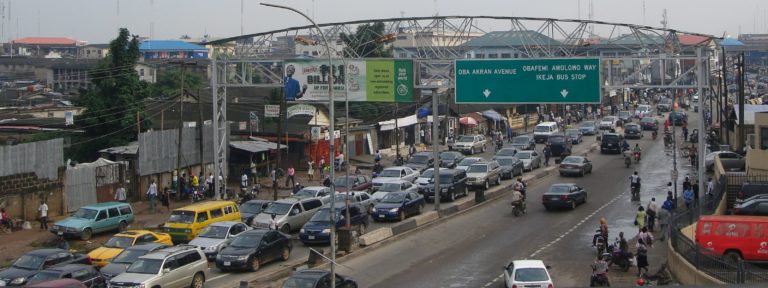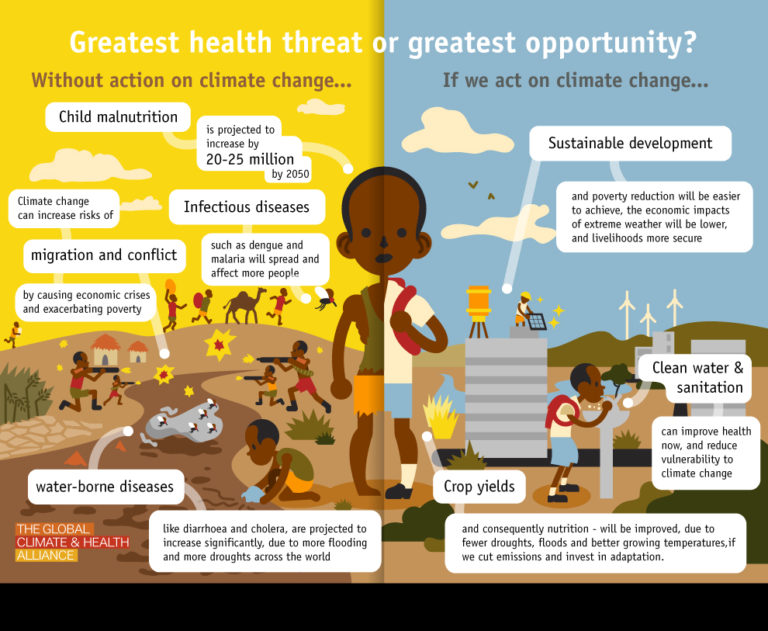A non-governmental organisation, Centre for the Defence of Human Rights and Democracy in Africa, is planning to sue the Federal Government over the case of a 28-year-old-man who lost his right hand while working for an Indian firm in Lagos and was reportedly denied compensation because he was a casual worker.
Radio Report: Group seeks compensation for casual worker
Kaduna presents SDGs progress report at UN Assembly
The Kaduna State Government has presented its Sustainable Development Goals (SDGs) Report 2017 at the UN, becoming the first state in Nigeria to launch local SDGs data and strategy development for implementation.
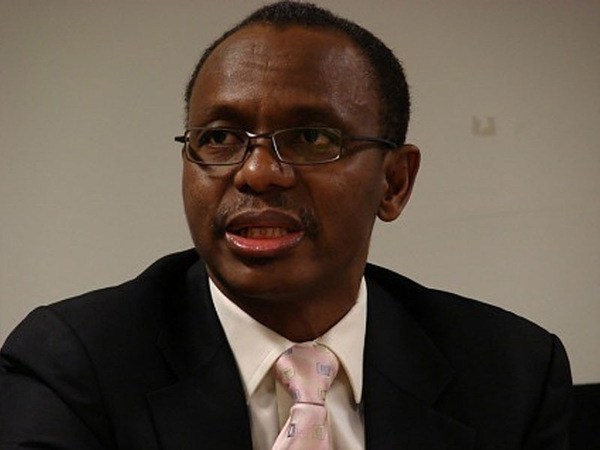
Deputy Governor, Barnabas Bala, said on the sidelines of the ongoing UN General Assembly, that the report highlighted key policy actions and progress being made so far towardbachieving some of the SDGs.
He added that it identified the baseline status of the SDGs in the State, highlighted key policy actions, progress being made and concluded with actions for the state to consider going forward.
“The Sustainable Development Goals are an integral part of Kaduna State’s efforts to improve the livelihoods of the state’s residents.
“By providing comprehensive targets for all aspects of development and coordinating the efforts of all actors. Kaduna will only achieve its potentials if it achieves the SDGs by the target date of 2030.
“To this end, the Kaduna State Development Plan 2016 to 2020 has fully integrated the SDGs and specifies concerted policy actions to help achieve each goal,” he said.
Bala said the goal of the State Development Plan was to achieve inclusive economic growth and socio-economic transformation that translates into substantial improvements in the quality of lives of citizens, through higher productivity and competitiveness.
He said: “The very first step on the journey to sustainable development has therefore been to generate sufficient data – a baseline to understand where Kaduna State stands in relations to the goals.
“This is to help guide policy interventions to target the deepest and most persistent pockets of poverty.
“The Kaduna State Bureau of Statistics was given the mandate to generate the State’s statistics with the passage of the Kaduna Bureau of Statistics and Statistical System Law of 2013.
“In 2015, the State Executive Council declared a data revolution and since then has invested heavily in establishing the State statistical system and is climbing a steep learning-curve.
“To fill the gaping hole in the State’s data, the Bureau has conducted a range of innovative new surveys and institutionalised the role of data in planning and monitoring across government.”
The event was attended by the Minister of State for Budget and National Planning, Zainab Ahmed; Wife of Kaduna State Governor, Aisha El-RufaiEl-Rufai; and the state’s Commissioner for Budget and Planning, Muhammad Abdullahi.
Least Developed Countries push for decisive climate action at UN Assembly
As the UN General Assembly convenes in New York, the Least Developed Countries (LDC) Group has called on heads of state and government to reaffirm their pledge to tackle climate change by committing to fair and concrete climate solutions that will protect all people and the planet.
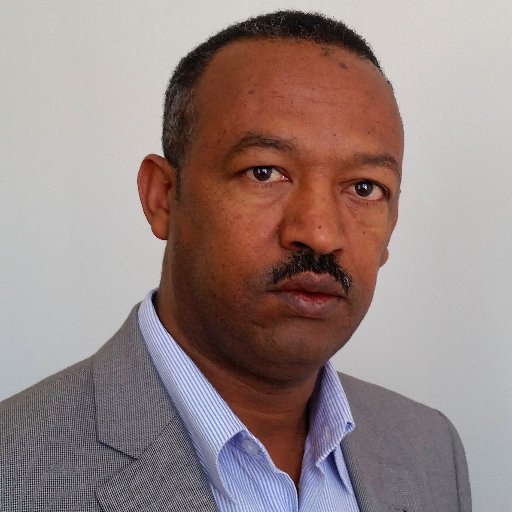
The Group has described the theme of this year’s UN General Assembly debate – “Focusing on People: Striving for Peace and a Decent Life for All on a Sustainable Planet” – as a timely and vital reminder of the importance of safeguarding a liveable world for ourselves and future generations.
Mr. Gebru Jember Endalew, Chair of the LDC Group, said: “The urgent need for serious climate action has never been clearer. Over the past months we have seen devastating events exacerbated by climate change, from deadly hurricanes and flooding, to wildfires and heatwaves. No corner of our planet is safe from climate impacts. Global temperatures have already risen 1.1°C and the frequency and severity of these events will only worsen with further warming.
“Collective commitments by the global community to date are woefully inadequate in the face of our shared challenge of climate change. Current pledges under the Paris Agreement put the world on course for 3.5°C of warming by the end of the century. This is a death sentence for many communities across the world, particularly in poor and vulnerable countries. Humanity cannot afford to delay.
“There is a widening gulf between the climate finance that is provided and mobilised and the reality of finance received and needed. Without adequate climate finance and support to developing countries, mainly LDCs and Small Island Developing States (SIDS) are left without a lifeline. Many trillions of dollars are required to implement the Paris Agreement.
“The LDCs are committed to being at the frontline of the clean energy revolution. The LDC Renewable Energy and Energy Efficiency Initiative will deliver sustainable climate action and lift communities out of poverty. If we are truly to set the planet on a safe course, all countries, and particularly those who contribute the most to climate change, must follow suit. Renewable energy has the power to place us on a path to a cleaner, fairer and more prosperous world for all.
“Spread across Africa, southern Asia, the Pacific and Caribbean, the 47 LDCs all face immense challenges in adapting to climate change and addressing the loss and damage it unleashes. LDCs are taking ambitious domestic action to lead by example, and call on the rest of the world to do the same in line with their capability to respond and responsibility for the problem. State, city and business leaders from around the world have just met in New York for climate week, and the LDC Group urges leaders at the UN General Assembly to carry the conversation forward and inspire real action from all nations across the globe.”
The LDC Group will convene in Addis Ababa, Ethiopia from October 2 to 6, 2017 for a Ministerial and Strategy Meeting to progress climate and sustainable development priorities, guided by justice, equity and ambition.
Benue Assembly bans use of tyres in meat processing
The Benue State House of Assembly has banned the use of tyres and other harmful materials used in singeing (roasting) meat in the state due to health hazards posed by the practice.
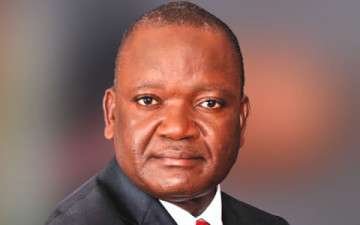
The House also directed that, henceforth, butchers/slaughterers should use firewood instead of tyres, kerosene or any other harmful substances for roasting meat.
Furthermore, the Assembly called on the State Ministry of Health and Human Services and the Ministry of Agriculture and Natural Resources to effectively regulate the activities of butchers and abattoirs in Makurdi and other parts of the State to forestall health and environmental hazards.
Speaker, Mr Terkimbi Ikyange (Ushongo/APC), announced the resolutions after a debate on a Motion of Urgent Public Importance moved by Mr Ianna Jato (Katsina Ala East/PDP) titled: “Hazards of Roasting meat with Tyres” during plenary on Thursday, September 21, 2017.
In the lead debate, Mr Jato noted that the practice of singeing (roasting) meat with scrap or disused tyres at slaughter house or abattoirs constitutes dangerous health and environmental hazards to both humans and the environment.
He stated that tyres are made of synthetic rubber, natural rubber, fabric, wire, carbon black and other chemical components which are unhealthy for human consumption.
He informed that a research conducted in 2008 as reported in the African Journal of Environmental Science and Technology revealed the existence of high level of metal residues in goat and cow hides, after being singed with scrap tyres, which is unsafe for consumption.
“Tyres as non-biodegradable combustible materials, when subjected to combustible smoke and released to the atmosphere, become toxic and if ingested, pose threats to life through liver damages, cardiovascular diseases, cancer, etc,” he said.
In their separate contributions to the debate, Mr Bem Mngutyo (Tarka/APC), Mr Terhemba Chabo (Gboko West/APC), Mrs Ngohemba Agaigbe (Gboko East/APC) and Dr Adoga Onah (Oju I/PDP), who condemned the use of tyres in processing meat, called for a stop to the practice.
By Damian Daga, Makurdi
IPCC clarifies climate science role
The Intergovernmental Panel on Climate Change (IPCC) has said that it’s mandate is to assess the state of the scientific literature on all aspects of climate change, its impacts and society’s options for responding to it.
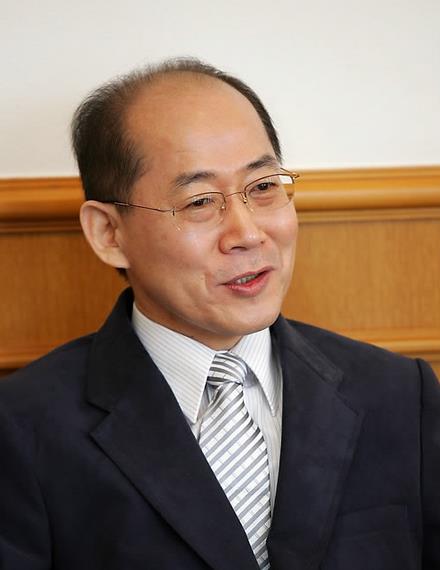
Making this submission on Thursday, September 21, 2017 in reaction to extensive media coverage that the organisation said atimes referenced its work, IPCC explained that whenever a new piece of scientific research is published that is relevant to any the topics, it joins the ever-growing body of evidence that the IPCC assesses. The IPCC added that it does not conduct original research itself, or develop its own models or scenarios.
The IPCC explained further: “Our next major assessment report (the Sixth Assessment Report, or AR6) is due in 2021/22. Scientific understanding about the implications of a global temperature increase of 1.5ºC above pre-industrial levels is growing quickly. In early October 2018, a year from now, the IPCC will be releasing a Special Report on Global Warming of 1.5ºC, to round up all the available knowledge on this important topic.
“The Special Report will also serve as an update to the IPCC’s previous comprehensive assessment (the Fifth Assessment Report, or AR5), which was published in 2013/14 before the Paris Agreement. At each stage of preparation through to completion, the Special Report will assess the fast-growing body of scientific literature relevant to 1.5ºC. Until that point, it would be inappropriate for the IPCC to comment on any single study.
“At the moment, the First Order Draft of the Special Report on Global Warming of 1.5ºC is undergoing expert review until Sunday, September 24, 2017. With nearly 2,000 experts from around the world registered to take part in this process, this is a key step in ensuring our reports continue to be objective, comprehensive and balanced. All comments received will be considered in the preparation of the Second Order Draft which will be open for review by government representatives and Expert Reviewers in January and February 2018.”
Four nations ratify Paris Agreement in two days
Four countries between Tuesday, September 19 and Wednesday, September 20, 2017 deposited their instruments of ratification of the Paris Agreement on Climate Change, and bringing the total number of ratifications to 164.
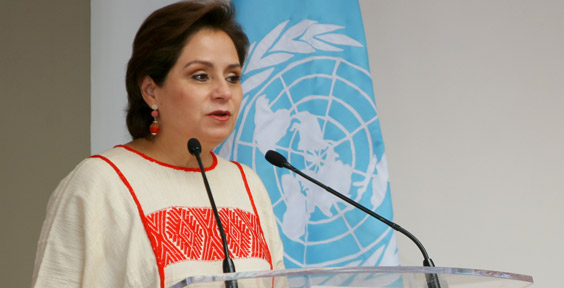
While Myanmar (161st) and Bhutan (162nd) submitted on Tuesday, Ecuador (163rd) and Liechenstien (164th) did likewise on Wednesday.
All ratifications will enter into force in a month’s time.
The Democratic Republic of Timor-Leste on Wednesday, August 16, 2017 deposited its instruments of ratification to become the160th country to endorse the global treaty, after Sudan and Zimbabwe on Wednesday, August 2 and Monday, August 7, 2017 respectively deposited their instruments of ratification of the Paris accord.
According to the United Nations Framework Convention on Climate Change (UNFCCC), East Timor’s ratification of the pact will enter into force in a month’s time on Friday, September 15, 2017.
Previously, Haiti, the Netherlands, Venezuela and Serbia ratified the pact respectively on on Monday, July 31; Friday, July 28; Friday, July 21; and Tuesday, July 25, 2017.
Before then, the Republic of Malawi on Thursday, June 29, 2017 likewise endorsed the agreement, ahead of Egypt and Togo, which ratified the climate accord respectively on Thursday, June 29 and Wednesday, June 28 2017.
The Paris Agreement builds upon the Convention (UNFCCC) and – for the first time – brings all nations into a common cause to undertake ambitious efforts to combat climate change and adapt to its effects, with enhanced support to assist developing countries to do so. As such, it charts a new course in the global climate effort.
The Paris Agreement’s central aim is to strengthen the global response to the threat of climate change by keeping a global temperature rise this century well below 2 degrees Celsius above pre-industrial levels and to pursue efforts to limit the temperature increase even further to 1.5 degrees Celsius.
Additionally, the agreement aims to strengthen the ability of countries to deal with the impacts of climate change. To reach these ambitious goals, appropriate financial flows, a new technology framework and an enhanced capacity building framework will be put in place, thus supporting action by developing countries and the most vulnerable countries, in line with their own national objectives. The Agreement also provides for enhanced transparency of action and support through a more robust transparency framework.
Advocacy for liveable cities in Nigeria
“Our goal has always been to deliver a clean, safe and prosperous Lagos…We love the criticism that Lagos is the second least liveable city (in the world). It is a challenge to us and we are working on it ”…..Governor Akinwunmi Ambode, My Random Thoughts…August 28, 2017.
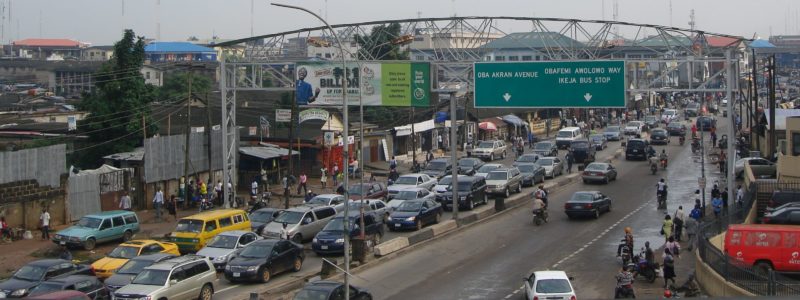
Cities by simple definition are the creation of mankind. They are permanent settlements where people live, work and create time for social, cultural and recreational activities. Liveability connotes an improvement in the living conditions and quality of life through the creation of a conducive environment that would engender happier and healthier living for all residents irrespective of age and where ever they choose to live. For a settlement to be adjudged a liveable city, it must guarantee security, ease of mobility with transportation options and free-flow of traffic, affordable housing, availability of jobs, functional civic institutions, supportive infrastructure, human services and abundance of green space for outdoor recreation.
Global competitiveness of Nigerian cities
With the exception of Lagos, it is on record that no other Nigerian cities had ever participated in the global most liveable cities survey, not out of spite, but for a reason why this piece was written. Most Nigerian cities are not globally competitive in so many aspects of urban living, economy, tourism, security, and entertainment. This “negative” assessment arises from the fact that feeble attention is being paid to city management, planning, and liveability in Nigerian cities. Regrettably too, Abuja, Nigeria’s new capital city is left out in the “neglect race.” The city too is yawning and calling for attention because its newness is gradually turning seedy. The factors responsible for these shortcomings have been well-articulated in many domains on the subject matter by researchers, economists, urban planners, and management gurus, to bear repeating in this article.
The Global Liveability Report 2017
Readers would recall the release of The Global Liveability Report in August 2017, by the Economist’s Intelligent Unit (EIU) which conducted the survey in 140 cities around the world. The Economist is an international magazine of repute. Its views are highly respected on matters of the world economy and corporate investment. The global liveability survey ranked the participating cities in order of best living conditions using certain qualitative and quantitative factors such as healthcare, education, infrastructure as determinants of how liveable the cities are by awarding scores to each factor. The scores from the factors are summed up and weighted to give a final score rated in percentage, with 100% being excellent living conditions and 1% is poor. The 2017 survey report ranked Melbourne, Australia as the most liveable city in the world, while Lagos had the second position of the least liveable city from the bottom with Damascus, Syria ranked first as the least liveable city from the bottom of the survey ladder.
The factor that really affected Lagos for the poor rating was insecurity “against a backdrop of political violence and government corruption,” the report added. The statement at the onset of this piece was Governor Akinwunmi Amode’s reaction to the Global Liveability Report 2017. Having taken the report in good faith, his optimism, and worries are of major concern when he pointed out that, “Lagos, as it is, has not reached its peak but we can see signs of progress and positive transition to the Lagos of our dreams.” But he further lamented that he does not see the same level of progress elsewhere in the country. And that he was not happy that most States in Nigeria are not advancing like Lagos.
To this writer, the Governor’s observation is the home truth and his apprehension cannot be dismissed. Nigeria has only one primate city with world visibility and a promising future for global competitiveness if well managed. That city is Future Lagos. Abuja, Nigeria’s capital city remains what it is…seat of government. It is not as enterprising and enticing as Lagos and as a result, Abuja does not have what it takes to be reckoned among the league of world capital cities of other countries such as Washington, USA; Canberra, Australia; Paris, France; London; Great Britain, Madrid, Spain; Jo’burg, South Africa; Beijing; China; Moscow, Russia; and Ottawa, Canada.
The main worry of Governor Ambode is that the primacy of Lagos, which is further reinforced by numerous developmental projects and social programmes being implemented by the Lagos State Government(LASG) will continue to attract more migrants to the megacity many of whom would be a burden on the resources of the LASG. This was why he was implicitly philosophical in his random thoughts when he said, “ if only one man is prosperous in a village, it is not progress. Rather the man is in danger.”
The way forward
How to make Nigerian cities liveable is the trinity of a policy shift, government commitment, and political will to think, plan and implement.
First, we must dissuade and discourage by regulation, the idea of constant urban development incursion into the country’s hinterlands and wetlands because of the penchant for city expansion, which leads to sprawl and growth management problems. Sprawl should be contained as much as necessary. Where avoidable, development authorities should discourage the creation of “stand-alone communities” in the middle of the wilderness, which has no nexus with existing urban settlement. The orientation of urban development must change to a paradigm shift that embraces new urbanism principles. The principles that call for civic engagement, good urban governance, smart growth, creativity expressed through design, application of technology, the transformation of blighted areas, injection of modern commerce, innovation, rich entertainment, cultural revival, the lure for tourism and people-centred communities where there are a plethora of oppourtunities for everybody to succeed.
Lagos cannot be the only viable city in Nigeria. We should maximise the advocacy for more liveable cities, which can compete favourably with other world cities.
The federal government in collaboration with the states must pay attention to the revitalisation and regeneration of other cities in the country including the overhauling of urban administration in order to make these cities functional and liveable. Such collaboration will be mutually beneficial to both governmental entities in terms of revenue generation. Overhauling of urban administration system should be the starting point.
Without a firm grasp of the knowledge about urban management and administration with strong and visionary leaders who must be committed to planning, which this writer apologetically believes are not plenteous in the country, Nigerian cities would continue to be at the backwater of new urbanism. The aspect of “visionary leaders” is imperative and worth the emphasis because it is the vision of the leader that drives the whole process of development.
The city of Dubai, UAE has through the history of its development benefitted immensely from visionary leaders who often decided what is to be “accomplished” for the city, not how to do it. A sort of “goal-setting agenda” which they always pursue with gusto. We want to advocate that policy-makers and urban administrators must be fairly knowledgeable and familiar with contemporary and emerging urban issues such as smart growth, climate change, carbon emission, green initiative, biodiversity, tactical urbanism, transit-oriented development, bus rapid transit, uneven growth, sustainable development, global warming, funding mechanism and city inclusivity. A rudimentary understanding of the importance and interconnectedness of all these trending issues in creating a liveable city should be a boon and without it, planning is made difficult. With poor planning, the achievement of set goals and objectives go south.
Last line
All the problems afflicting Nigerian cities are cumulative effects of neglect and maladministration, weak growth management strategy, corruption, and to a larger extent, ineffective urban planning. The government cannot continue to pay lip service to city administration, the consequence of which is better imagined. When cities are made liveable, everyone benefits. As Robert H. McNulty, President, Partners for Liveable Communities rightly said, “ …liveable communities can augment economic development and benefit all segments of the resident population… Liveability is an action for the good.”
By Yacoob Abiodun (Urban Planner, Planning Advocate; Parkview Estate, Ikoyi, Lagos, Nigeria)
More firms commit to 100% clean energy
Global financial institutions Citi and JPMorgan Chase & Co. on Tuesday, September 19, 2017 at the Climate Week NYC 2017 in New York joined The Climate Group’s RE100 campaign with CDP, committing to source 100% renewable power across their global operations by 2020.
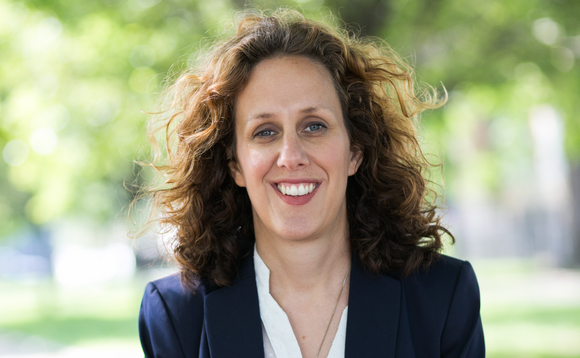
Other companies joining the RE100 initiative are one of the fastest-growing beverage companies, Califia Farms, and UK investment management company Jupiter Asset Management.
The announcements follow news last week that The Estée Lauder Companies, Kellogg Company, DBS Bankand Clif Bar & Company have also joined RE100. 110 of the world’s most influential companies are now generating demand for over 150 TWh renewable energy annually – more than enough to power New York State.
Helen Clarkson, CEO, The Climate Group, said: “This year’s Climate Week NYC is jam-packed with the best examples of corporate leadership – from cleaner, smarter energy choices through to ambitious commitments on electric transport. Companies joining RE100 recognize that renewable power is a smart business decision. Their leadership will help to shape energy markets away from fossil fuels and deliver on the Paris Agreement at speed.”
Citi is the leading global bank, with approximately 200 million customer accounts and business in more than 160 countries, and a mission to responsibly provide financial services that enable growth and economic progress. The bank has set a new target to achieve 100% renewable electricity by 2020 across its global operations, as part of its broader Sustainable Progress strategy and $100 billion Environmental Finance Goal. Citi’s strategy will consider on-site power generation and Power Purchase Agreements, along with a continuing focus on energy efficiency.
Michael Corbat, CEO, Citi said: “We are right alongside our clients in supporting the growth of renewable energy development and production. We’re committed to using renewable power sources for our global operations while continuing to provide financing for our clients’ renewable energy and energy efficiency projects around the world.”
JPMorgan Chase & Co., a leading global financial services firm with assets of $2.6 trillion, announced in July that it plans to go 100% renewable by 2020. The firm, which has offices and operations in more than 60 countries across over 5,500 properties, covering approximately 75 million square feet – about 27 times the square footage of the office space at the Empire State Building – will achieve this goal by prioritising transactions that add new renewable energy to the grids on which it consumers power.
The firm will install renewable energy technology across buildings and branches, sign Power Purchase Agreements with renewable energy projects and reduce energy consumption. JPMorgan Chase also committed to facilitating $200 billion in clean financing by 2025.
Matt Arnold, Global Head of Sustainable Finance, JPMorgan Chase & Co., said: “Business has an essential role to play in advancing the transition to clean energy and a safe climate. Our commitment to source renewable power for 100% of our global energy needs by 2020 – which is paired with a plan to facilitate US$200 billion in clean energy financing through 2025 – is driven by ‘out-of-the-box’ innovators and a commercial approach that will deliver a more resilient energy supply chain.”
Jupiter Asset Management is a leading, London-based investment management company, with a goal of sourcing 100% renewable energy for its electricity use by 2018. The company is already 94% renewable.
Maarten Slendebroek, CEOr, Jupiter Asset Management, said: “We believe our decision to target 100% renewable electricity through RE100 highlights the alignment between our corporate strategy and our investment activities. As a long-term active investor, we believe that climate change and energy transition carry risks and opportunities that warrant our attention. This initiative demonstrates Jupiter’s commitment to environmentally responsible corporate behavior.”
Califia Farms is a leading provider of nutmilks, ready-to-drink coffees, juices and creamers, all of which are 100% plant-based, non-GMO, carrageenan-free, gluten-free, vegan and made with no artificial ingredients. The company is committed to sourcing 100% renewable electricity by 2020.
Eli Steltenpohl, Sustainability Manager, Califia Farms, said: “Next year, we plan on harnessing the California sunshine with more than just flavorful fruits and nuts. Califia Farms is committed to environmental stewardship across all facets of our business and we are excited to demonstrate that energy action is viable for companies of all sizes. We want to show how better-for you products can be produced in a better way, regardless of your industry or footprint.”
The eight newcomers to RE100 were announced on stage at ‘VELOCITY – Accelerating Climate Action’, a unique event at Climate Week NYC, which sees The Climate Group partner with VICE Impact, Formula E and Spring Studios to champion ambitious climate action to business and governments.
There were high level speakers from RE100 member companies, including AB InBev, DBS Bank, General Motors, Goldman Sachs, H&M, JPMorgan Chase & Co., Kellogg Company, and Philips Lighting – with H&M also speaking on their EP100 commitment on energy productivity, alongside Mahindra & Mahindra.
General Motors announced on Tuesday that it would power its Ohio and Indiana plants entirely with wind energy, meaning that renewable energy will 20% of the automaker’s global electricity load.
RE100 recently celebrated its 100 members milestone, drawing praise from global climate leaders including Patricia Espinosa, Executive Secretary of the United Nations Framework Convention on Climate Change (UNFCCC), and former US Vice President Al Gore.
The Climate Group has also launched its new EV100 initiative, to boost the uptake of electric vehicles across the world, and make electric transport the new normal.
Climate change: Why no one is safe
I was commuting from Ojota to Obalende a fortnight ago, in one of the big red buses used in Lagos when, perhaps taking a peek at a climate change material I was glancing through, a lady sitting beside me struck up a conversation. She wanted to know what this climate change thing really was, and why everyone was so bothered about it in foreign countries. Snickering, she chipped in an aphorism she imagined to be Nigerian by its nature, “All these things no dey affect Naija people abeg”. This got me worried.
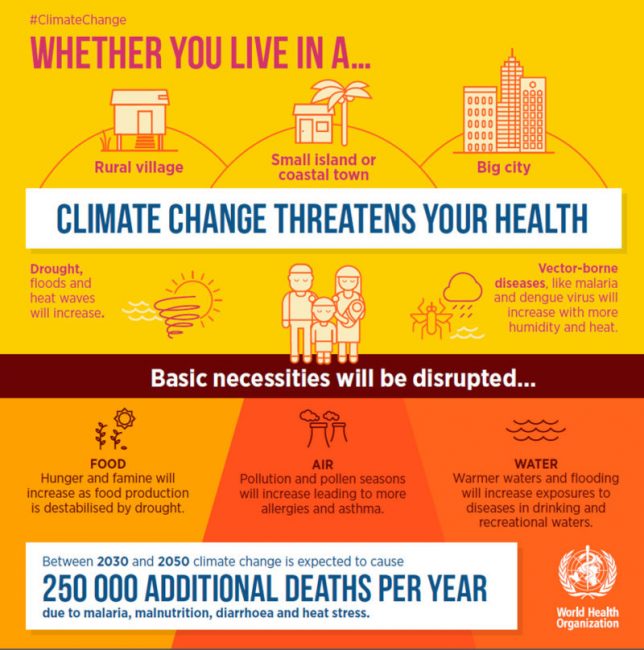
The perception of climate change in these area – by that I mean Nigeria and most of Africa – has remained fairly constant for a while, affected by traditional, socio-cultural and religious narratives, an inundation that Africa does not matter in the scheme of things, and is not affected too by whatever calling card nature comes with. The snag in this narrative though, is that, it is highly fallacious and leaves us grossly underprepared. When it comes to climate change, no one is safe, and here is why.
Climate change patterns play a fundamental role in shaping natural ecosystems and the human economies and cultures that depends on them; and pragmatically speaking, which leaves no economy out of the mix. Perhaps it is necessary to demystify the concept of climate change a bit. Climate change refers to rapidly changing weather patterns over a period of time, caused by global warming which is a result of human activities, especially the use of fossil fuels. So, simply put, the weather patterns change rapidly, resulting in extreme ones; too dry or too wet, too hot or too cold. This inevitably upsets the eco-system and environmental balance; affecting agriculture, water supply, food availability and access, livelihood, keeps more people indoors and essentially affects human health. Then follows accelerated rates of evaporation, causing the skies to be heavy with humidity, and the soil to be lacking in it, the causal factors for droughts, heavy rainfalls and warmer ocean temperatures that strengthen hurricanes and tornados.
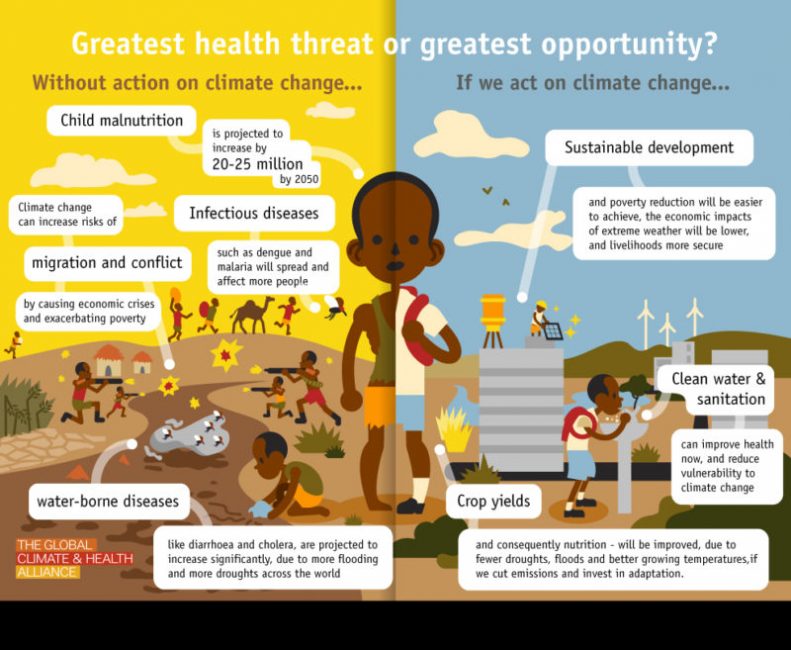
Climate change clearly plays a pivotal role in human existence today, and even with the greatest attempts to deny the reality of this quandary, one area we cannot fail to see climate change negatively impacting society is in the adverse health effects to communities. Climate change effects on health include direct effects and indirect effects. The direct effects span vector-borne diseases such as malaria and dengue fever. Others include West Nile virus, cholera, Lyme disease and asthma resulting from air pollution. Even Ebola is not left out of this conversation. According to Kris Murray, senior research scientist at EcoHealth Alliance, an organisation that researches and educates about the relationships between wildlife, ecosystems and human health, climate change has strong potential to play a role in increasing the risk for ebola. Meningitis too, famous for its epidemic in the earlier part of this year had its outbreak peaked by extremely low humidity and severe heat waves in the Northern part of Nigeria.
Recently, a new study published in the Proceedings of the National Academy of Sciences, predicts more deadly heat from climate change. The researchers further warned that by 2050, more than 350 million people living in urban areas would be hit with deadly heat waves every year. This poses an even bigger challenge for an already hot sub-Saharan Africa. Truth be told, if Africa does not act now, we will be toast, sitting ducks for climate change, especially considering that the vulnerability predictions for West Africa keeps us as being in acute health dangers from the effects of climate change . With weaker economies than developed nations, less levels of preparedness and an underfunded healthcare system, it will be a case of double jeopardy if we wait till the adverse effect of climate change hit the health of Nigerians hard. Recently, resident doctors, comprising a large chunk of doctors in Nigeria, went on strike to lament bad welfare conditions. The infrastructure leaves so much more to be desired, while access to healthcare for many is a farce.
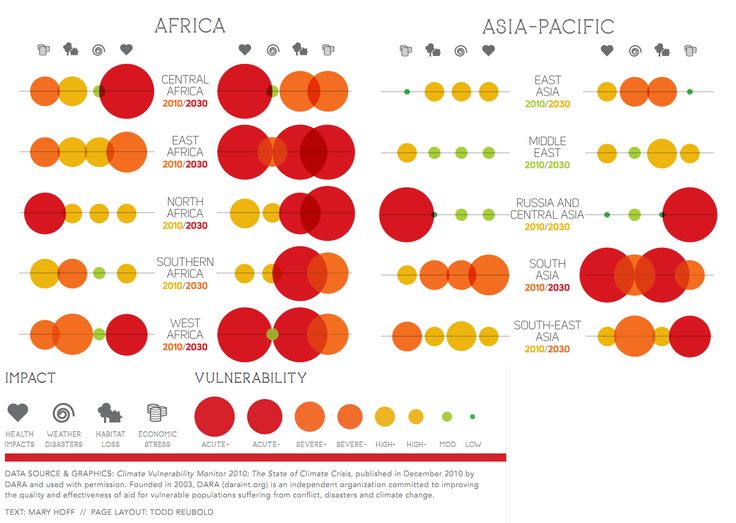
The major public health organisations of the world have said that climate change is a critical public health problem. Climate change makes many existing diseases and conditions worse, but it may also help introduce new pests and pathogens into new regions or communities. Dengue fever for instance infects about 400 million people each year, and is one of the primary causes of illness and death in the tropics and subtropics. The IPCC projects that the rise in temperatures along with projected increases in population could put 5 to 6 billion people at risk of contracting dengue fever in the 2080s. The reproductive, survival and biting rates of the Aedes Aegypti mosquitoes that carry dengue and yellow fever are strongly influenced by temperature, precipitation and humidity. Scientists at the University of Maryland School Of Public Health have also found that extreme heat and heavy rainfall may increase risk of hospitalisation for asthma.
Taking the discussion to the indirect effects, only a few weeks back, we witnessed the sad incident of flooding in Makurdi, an occurrence that was reported by the National Emergency Management Agency (NEMA) to have claimed three lives and put 110,000 people at the risk of contracting diseases. The agency further noted, “At the Government approved IDP Camp, up to 4 families are reported to be accommodated in one room. This suggests the possible risk of an epidemic as some hospitals in affected locations are reported to have shut down due to the flood.” This is one of the adverse effects of climate change that can result in further health problems.
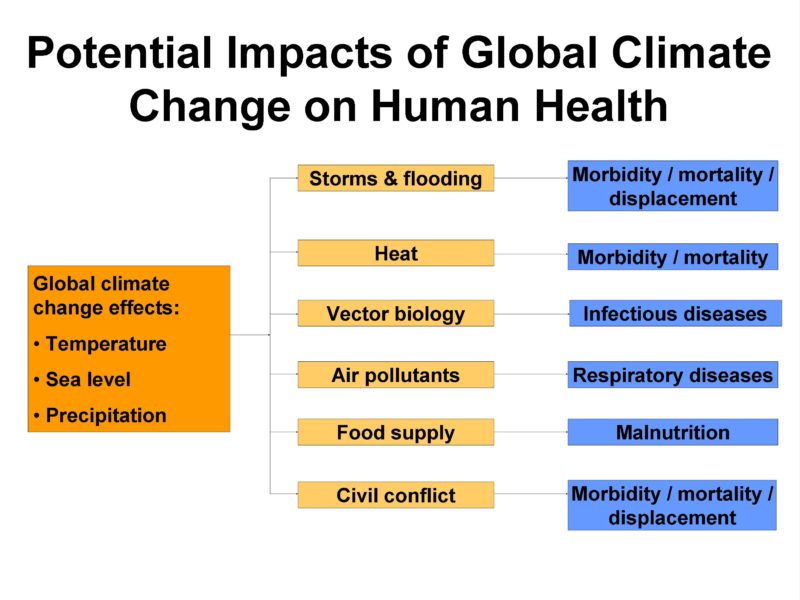
Recently, the World Health Organisation (WHO) estimated the costs to health from climate change to be linking $2-4 billion per year by 2030, across the world. With flooding comes related disasters since floodwaters act as sponges for hazards. As they bubble past city streets and fill cars and homes, they collect sharp objects, sweep up insects and wildlife, and gather human waste. In fact, in certain instances, they draw out unwelcome wild animals. Images of alligators swimming in the Lekki waters during the recent flooding in Lagos were abuzz on social media through the months of July and August.
Snakes, too, are a concern especially during landslides and Hurricanes. In the week following recent Hurricane Irma, parts of Florida were awash in millions of gallons of sewage and in Texas, following Hurricane Harvey, oil refineries and chemical plants have dumped a year’s worth of cancer-causing pollutants into the air. In both states, doctors are on the lookout for an uptick in respiratory problems, skin infections, and mosquito-borne diseases brought on by the water and mold the storms left behind.
There is also the mental effect of climate disaster displacements. Stress resulting from it jeopardizes immune systems, and it is difficult to maintain food hygiene in disaster zones. A year after Hurricane Katrina, for instance, residents reported an increase in suicidal thoughts, increasing from 2 percent to 6 percent among the 815 people studied. Post-traumatic stress disorder and depression also worsened. This brings me to the fundamental question of how ready our hospitals and emergency response organisations are for the spate of climate-related health problems that this decade is debuting.
Various recommendations have been made by scholars and public health professionals viz; improving early warning systems, better engaging disadvantaged communities, developing frameworks to link research, reducing food waste and more research into the links between conflict, instability and climate change, and I verily support them. I will however suggest some first steps.
The health industry in Nigeria clearly has little or insufficient knowledge of climate change, and needs some irradiation to enable them grasp the connection it has with health and quantify the specific effects climate change has on the overall disease burden and on opportunities and effectiveness in the public health. This will help them better mitigate their adverse effects.
There also needs to be a symbiotic and synergised approach from the health and environmental sector, two sectors that seem to be on two far ends of government in Nigeria. The health sector can also use climate information effectively in epidemic early warning systems as useful indicators to support early detection of disease outbreaks and prepare ahead of time for epidemics that are likely to occur. This synergy should importantly include the Emergency response agencies to enable them also be prepared for these disasters and obliterate the rate of climate-related illnesses.
Essentially, climate change is not a game of hide and seek where one can play into the safe zones and eclipse their corner of the world from its balefully warm hands. The health effects of climate change are enormous, and we must first understand and accept that in order to prepare ourselves for solutions. We must also be reminded, however subtly, that with each activity we do to hurt the environment, we hurt our health; individually and collectively. Hence, there must not just be increased ambition, there must be increased action until we can bend the emission curve and slow down global warming.
In the words of UN General Secretary, Antonio Guterres: “This may not be easy at times, but for the sake of today’s and future generations, it’s the path we must pursue.”
Until then, no one is safe.
By Caleb Adebayo
NBMA restates commitment to ensuring safety of GMOs
The Director General/CEO, National Biosafety Management Agency (NBMA), Dr Rufus Ebegba, has assured Nigerians that the Agency will continue to ensure that any genetically-modified organisms (GMOs) allowed into the country will pose no threat to human health or the environment.

Dr Ebegba, who said this while receiving an award bestowed on him by the National Youth Council of Nigeria in Abuja on Wednesday, September 19 2017, urged Nigerians to trust the federal government to safeguard their health and the environment from potential adverse impacts of modern biotechnology.
According to him, NBMA was established by government to ensure safety in the application of modern biotechnology and the use of its products, adding that the future and wellbeing of Nigerians are paramount to the government.
“The present administration sees the need for the youths to be gainfully employed that is why most of the staff of the Agency are youths. This is a deliberate attempt to ensure that the youths are empowered,” he said.
He urged them to shun violence and work together for the unity of the nation, noting that the youths are key to the development of the nation.
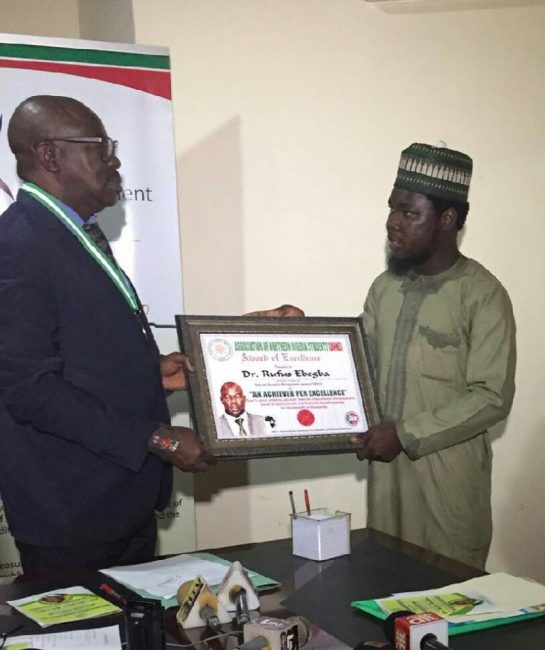
While presenting the award, the President of the National Youth Council of Nigeria who was represented by his Chief of Staff, Ugwumba Kelechi, commended the DG/CEO for his outstanding leadership in ensuring that the Agency is up and doing in the regulation of modern biotechnology and its products.
Also on Wednesday, the Association of Northern Nigerian Students (ANNS) presented an award of excellence to Dr Ebegba for his outstanding service to humanity.
Comrade Haruna Hamza, the president of the ANNS, while presenting the award, said the award was well deserved, adding that the DG is an ambassador of peace and urged him not to rest on his strides as the Northern students who are over 18 million in number are in support of his activities on GMOs regulation in the country.
The DG/CEO thanked both bodies and pledged to keep up the standard of the Agency for the good of the country.


